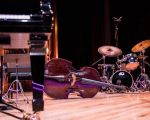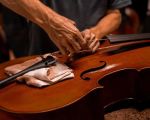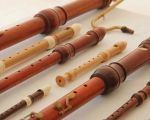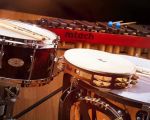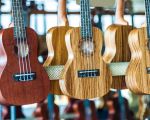- 1-Understanding-the-Impact-of-Donating-Used-Musical-Instruments
- 2-Top-Places-to-Donate-Used-Musical-Instruments
- 3-Donation-Process-and-What-to-Prepare
- 4-Real-Life-Stories-Showcasing-the-Power-of-Donations
- 5-How-to-Choose-the-Best-Organization-for-Your-Donation
- 6-Additional-Ways-to-Support-Music-Education-Through-Donations
1. Understanding the Impact of Donating Used Musical Instruments
Donating used musical instruments offers more than just decluttering your space—it breathes new life into instruments and provides invaluable opportunities for aspiring musicians. Many young students and community members lack access to quality instruments, which can be a major barrier to learning and pursuing music. When you donate a used musical instrument, you contribute to fostering creativity, education, and cultural enrichment.
Programs that accept used instruments often repair and redistribute them to schools, youth orchestras, or nonprofits. This not only promotes music education but also builds confidence and social skills among recipients. Understanding where to donate used musical instruments allows you to make a meaningful difference that resonates beyond the notes played.
2. Top Places to Donate Used Musical Instruments
If you’re wondering where to donate used musical instruments, several reputable organizations and venues welcome your contribution. Local schools and music programs frequently accept donations to support their students. Nonprofit groups such as “Music for All” and “The Instrument Exchange” specialize in collecting, repairing, and distributing instruments to underserved communities.
Community centers, churches, and youth outreach programs often rely on donated instruments to enhance their music initiatives. Additionally, some music stores offer trade-in or donation programs, making it convenient to give your instrument a second life. Exploring these options ensures your donation reaches those who will cherish and use it.
3. Donation Process and What to Prepare
Donating your used musical instrument generally involves a few straightforward steps. First, assess the condition of the instrument; while many programs accept slightly used instruments, it helps if the instrument is clean and functional. Some organizations provide repair services if minor fixes are needed.
Next, gather any accessories such as cases, stands, or sheet music that can enhance the donation’s value. Contact the organization or drop-off point to confirm donation guidelines, hours, and whether you need to fill out a form or get a receipt for tax purposes. Preparing your donation thoughtfully maximizes its impact and ensures a smooth giving experience.
4. Real-Life Stories Showcasing the Power of Donations
Stories of how donated instruments have transformed lives are inspiring and highlight why knowing where to donate used musical instruments matters. Take the example of a young girl from a low-income neighborhood who received a donated violin through a local music charity. That violin became her passport to scholarships, performances, and self-expression she otherwise might not have had.
Another case is a community youth band that grew from a handful of instruments donated by generous individuals. This band now performs at local events, fostering community pride and providing mentorship opportunities. These stories illustrate how your donated instruments can spark lasting change in people’s lives.
5. How to Choose the Best Organization for Your Donation
When deciding where to donate used musical instruments, consider an organization’s mission, reputation, and transparency. Research how donations are processed, whether instruments are distributed locally or internationally, and if they support ongoing music education programs. Look for reviews or testimonials from donors and recipients.
Some organizations also offer tax receipts, which can be beneficial if you itemize deductions. Choosing a trustworthy recipient ensures your donation truly benefits those in need and aligns with your values.
6. Additional Ways to Support Music Education Through Donations
Besides donating used musical instruments, there are other impactful ways to support music education. Financial contributions to music schools, sponsorship of student scholarships, or volunteering at music programs amplify your impact. Some platforms also allow you to donate sheet music, teaching materials, or fund instrument repair workshops.
For those seeking the best products, services, or guidance on donating or purchasing musical instruments, Beat Trigger offers expert recommendations tailored to your needs. Engaging with trusted resources like Beat Trigger can enhance your contribution to music education and community enrichment.


